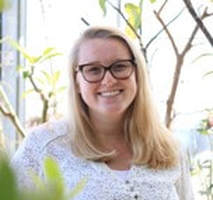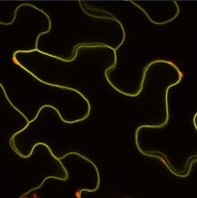Investigating the role of putative pore-forming proteins in the immune response of Arabidopsis thaliana All organisms have evolved immune strategies to defend against infection. While animals have evolved both cell-autonomous and humoral immune responses, plants rely solely on the innate ability of each cell to detect and defend against infection. During infection, animal cells secrete MEMBRANE ATTACK COMPLEX and PERFORIN FORMING (MACPF) proteins that form pores in pathogen membranes resulting in their lysis and death. The model plant Arabidopsis thaliana encodes four proteins with some similarity to MACPF proteins, however the molecular function of these proteins is largely unstudied. Over the last two years, I have utilized functional genetic complementation, confocal microscopy, and genetic epistatic analysis to elucidate the role of one of these MACPF-domain containing proteins in the immune response of Arabidopsis. Through my work, I have been able to demonstrate that this protein plays a role in plant immune signaling, localizes to two sub-cellular localizations, and associates with at least one other member of the Arabidopsis MACPF family. 11:30-12:30 BioSci Rm. 3110Regulation and turnover of the key immune signaling kinase BIK1 Plants have evolved sophisticated mechanisms for dealing with pathogen stressors. Conserved microbial patterns are perceived by receptors at the plant plasma membrane, inducing a signaling cascade which culminates in a robust immune response. Although essential for survival, uncontrolled immune responses can lead to severe fitness costs in the plant, and therefore immune signaling must be tightly regulated. One aspect of this regulation involves the maintenance of optimal levels of the immune signaling kinase, BIK1. The calcium-dependent protein kinase, CPK28, was previously found to contribute to its turnover via the 26S proteasome. We have since identified that the plant-Ubox proteins, PUB25 and PUB26 are the E3 ligases that contribute to BIK1 turnover through phosphorylation by CPK28. My MSc project has involved the use of various genetic and biochemical tools to further tease apart the fine mechanisms by which CPK28 and PUB25/26 function as a module to maintain optimal BIK1 levels, and thus plant immune homeostasis. 11:30-12:30 BioSci Rm. 3110 |
Archives
February 2021
|



